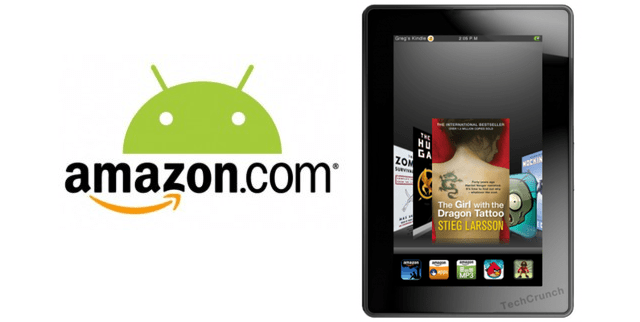The news that Amazon’s tablet was real was a great scoop, but not quite a shock to the industry. Bezos all but confirmed it months ago, and supply-line leaks had it coming in late summer, which was optimistic but not far off; the Fire will be arriving on Wednesday.
One question I always had, though, was how Amazon would justify putting out this device when they’ve spent so long slagging the iPad as an e-reading platform? Simple: the Fire isn’t an e-reader. Sure, you can read books on it, but its main function is acting as a wedge for all those sadly-overlooked Amazon services. Apple sells you on one platform then keeps on nudging you until you accept the rest. iTunes, iPhone, iPad, OS X, it doesn’t matter which you do first, the point of the ecosystem is to make you use all of them. Amazon is trying for a similarly lateral play.
Amazon’s web services powers a ton of the web. They’ve got cloud coming out of their ears. A fraction of their infrastructure would power the day-to-day media and data needs of millions of consumers. They own the water main, but they lack a firehose. When people think music, they think iTunes. Movies, they think Netflix. TV, they think Hulu. Or any number of things. But Amazon does so many of these things, often with better pricing or selection. If they can get a device out there and dangle a suitably enticing carrot, people will find themselves entrapped in a web of savings.
Some say it’ll be Amazon Prime. Sure, why not? When the ecosystem is as locked down as the Kindle Fire’s is reported as being, you pull in a nice fat return on investment. Prime is a small price to pay. Amazon knows you have to spend money to make money, and they’re going to be spending a huge amount of money to get this thing into a million homes. You think the original Kindle flew of the shelves? That brutalist-looking thing? They sold a few, but then they sold the upgrade. Progress was being made, and now that product that wasn’t ready to go big was suddenly being massively improved. Apple is trying this with the Apple TV, minus the improvement part. You have to make people think they’re getting in when the getting is good, and Amazon might be able to hit that sweet spot in the low-cost tablet wars.
The new Nook presents them with a challenge. It’s too late for Barnes and Noble to make any major changes to the product before they launch next month, but the sales of the Nook Color give it some headway. It remains one of the very few Android tablets out there that can be easily differentiated, and a refresh to that platform would have given Amazon’s device the feeling of retaliation rather than attack. It’s being said that the device was rushed, and that it’s a Playbook clone, but that’s oversimplifying things. It’s the most viable product they could come up with on a schedule, and I seriously doubt it’s going to be the last, whether it’s a success or not.
And as MG suggested, Apple has no reason to be scared. But all the other tablet makers should be shaking in their boots. As yet few have convinced consumers to shell out iPad money for Android quality. The big hardware rush happened too early and consumers were underwhelmed. However, a cheap and recognizable Amazon tablet might just sell to the people who have regarded the Xoom and Galaxy Tabs as early adopter devices. Amazon threatens to put out a “whole” device, limited as it may be, and the wholeness of the iPad environment is a big part of its selling power. Android, as much as I like it, isn’t whole. So how could Motorola or Samsung put out a whole device when its main component is unfinished? Kindle will launch whole, and people will be very quick to perceive that.
The fun thing is that as big a deal as this seems, the risk they’re taking is really tiny. Millions of Kindles are being sold right now and because Amazon is positioning the Fire to basically be a shortcut to everything at Amazon but e-books, the two devices aren’t, strictly speaking, competitors. In fact, with a $99 Kindle on the horizon (don’t deny it, Amazon), they could start giving them away with the Fire tablets and lock out the competition on two fronts. Meanwhile, sales of the original Kindle, which is synonymous with e-reading, will continue to grow and Amazon will continue to dominate, even as its competitors outclass it (the new touchable Nook and Kobo are great). If you want to lead the industry, it helps to have the best product, but it’s by no means required.
Come wednesday, expect a big value play to get consumers interested: a year of Prime, a bunch of free TV shows or movies, or maybe even a free ad-supported Kindle if you buy now, now, now! Anything they can do to take the wind out of the Nook’s sails and make their tablet a one-of-a-kind device and value, it’ll all be on the line. But even if they only sell a dozen, don’t expect them to fold. Amazon is too interested to stay away from this gun fight, even if all they’ve got this week is a knife.
P.S. Does anyone else think they should have called it the Candle?
